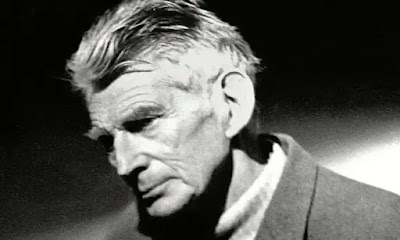I have nothing but contempt for the rejection of "narrow-minded" Ireland by Irish modernist writers like Joyce, Beckett, and Kavanagh. Aye, and even by my own hero Yeats! "For men were born to pray and save", as he whinges in "September 1913". Well, nobody in Ireland prays now and nobody can afford to save, so would he be happy with that? I would have been on the side of the rioters when it came to Playboy of the Western World. On principle!
Thursday, March 10, 2022
What's Wrong with Narrowness, Anyway?
"Over the past few years, he had spent only a few consecutive months in Ireland and it was not long before he again became irritated by what he saw as parochialism and narrow-mindedness". From Damned to Fame: The Life of Samuel Beckett by James Knowlson.
I really don't get this. Beckett famously ended up writing plays that employed the fewest elements possible, usually in a suffocatingly claustrophobic setting, and with almost no action. So what did he have against narrowness? Why is it OK in his literary works, but bad in his home country? How could he see the artistic possibilities of narrowness in literature and not accept that it might have social and cultural benefits, too? How was it not congenial to him?
I have nothing but contempt for the rejection of "narrow-minded" Ireland by Irish modernist writers like Joyce, Beckett, and Kavanagh. Aye, and even by my own hero Yeats! "For men were born to pray and save", as he whinges in "September 1913". Well, nobody in Ireland prays now and nobody can afford to save, so would he be happy with that? I would have been on the side of the rioters when it came to Playboy of the Western World. On principle!
I have nothing but contempt for the rejection of "narrow-minded" Ireland by Irish modernist writers like Joyce, Beckett, and Kavanagh. Aye, and even by my own hero Yeats! "For men were born to pray and save", as he whinges in "September 1913". Well, nobody in Ireland prays now and nobody can afford to save, so would he be happy with that? I would have been on the side of the rioters when it came to Playboy of the Western World. On principle!
Subscribe to:
Post Comments (Atom)

No comments:
Post a Comment